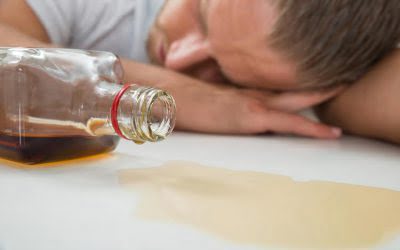13 Mar Alcohol use disorder tied to development of chronic kidney disease: A nationwide database analysis PLOS One
However, the resilience of the human body, particularly the kidneys, offers a glimmer of hope. Understanding the extent of recovery possible for kidneys affected by alcohol damage is crucial for those seeking to restore their health and prevent further harm. Recognizing the early signs of kidney damage and taking steps to reduce alcohol use can help protect your kidneys for years to come. Managing your alcohol intake is one of the most effective ways to protect your kidneys if you live with or are at risk for diabetes.
Risks of Alcohol Abuse with Kidney Disease
CYP2E1 is of particular interest when thinking about potential mechanisms for alcohol-related kidney damage. The body mainly metabolizes alcohol using the enzyme alcohol dehydrogenase, which is expressed primarily in the liver. However, during chronic ethanol consumption, the body also uses CYP2E1 in the liver as well as the kidneys. Interestingly, studies find that CYP2E1 induction is much more robust in the kidneys compared with the liver (Roberts et al. 1994; Zerilli et al. https://aegreenkeepers.corporat-e.com/methadone-withdrawal-symptoms-treatment-and-more/ 1995).
When the body is dehydrated, the kidneys work harder to retain water, but alcohol interferes with their ability to do so effectively. As a result, alcohol-induced dehydration causes additional stress on the kidneys. Drinking too much alcohol over time can lead to a condition called alcoholic liver disease, which can ultimately cause kidney failure. Drinking enough water and having a balanced diet can help support kidney health and prevent alcohol-related kidney damage. Excessive drinking can damage your kidneys and lead to kidney failure over time. In this article, we discuss the link between alcohol and kidney function and what you can do to minimize risk.
The Benefits of Cognitive-Behavioral Therapy in Addiction Treatment
Excessive alcohol use can also cause liver disease, which in turn puts more stress on the kidneys. For this reason, chronic alcohol use can lead to both liver and kidney disease. Despite the multiple possible causes of acidosis, disturbances in acid-base balance are more frequently manifested as low acidity (i.e., alkalosis). drug addiction Alkalosis was present in 71 percent of patients with established liver disease in 11 studies, and respiratory alkalosis was the most common disturbance in 7 of the studies (Oster and Perez 1996). If an acute alcoholic binge induces extensive vomiting, potentially severe alkalosis may result from losses of fluid, salt, and stomach acid.
Recognizing the Signs Of Kidney Damage From Drinking Alcohol
When alcohol is metabolized, it produces substances like acetaldehyde and reactive oxygen species, also known as free radicals. This process can lead to oxidative stress within kidney tissues, an imbalance where harmful free radicals overwhelm the body’s antioxidant defenses. Oxidative stress contributes to cellular damage and triggers inflammation in the kidneys. Over time, alcohol abuse can and will take everything good out of your life. It can drain your accounts, ruin your relationships, destroy your career, and cost you your family. While these discussions usually revolve around the liver, which is important, it’s also vital to know how the kidneys are impacted by alcohol use.
The primary function of the kidneys is to remove waste products and excess fluid from the body. Kidneys are responsible for helping your body maintain a healthy balance of water and electrolytes. Your kidneys also control the production of red blood cells, produce vitamin D, release hormones to regulate blood pressure, and remove drugs from your body.

The Most Common Types of Addiction Impacting Veterans
These changes can be profound in chronic alcoholic patients, who may demonstrate clinical evidence of dehydration. Another study with dogs (Beard et al. 1965) disclosed that the effects of chronic alcohol consumption endured even longer. The investigators noted increased plasma and extracellular fluid volume 1 week after chronic alcohol ingestion, and these volume expansions persisted for the remaining 7 weeks of the study. Similar alterations have been found in body fluid volumes among chronic alcoholic patients. Established liver disease impairs this important balancing act, however, by either greatly augmenting or reducing the rates of plasma flow and filtration through the glomerulus.
Although human being has been using drugs for entertainment purposes since long time, yet the number of drugs dependents has increased over the last few years 2. Drug abuse has become a major social problem of the modern world as it is very common and involves lifetime exposure of about 46% of the general population. In India, the National Household survey of Drug Use documented the nationwide prevalence of drug abuse and found that alcohol (21.4%) is the primary drug of abuse followed by opioids (0.7%). The prevalence of tobacco use is high at 55.8% in males between 41~50 years of age. Cocaine abuse is epidemic in the United States with a total of 34.3 million Americans (14.6% of surveyed population) have used cocaine at some time.
- For a person weighing 150 pounds, this dose would be roughly equivalent to 17 drinks.
- Along with these symptoms, some people who abruptly stop drinking may encounter delirium tremens.
- Cystatin C, a novel serum biomarker that rises in the setting of kidney injury, may be a better surrogate marker for assessing kidney function in patients with liver impairment 35.
- For people who already have hypertension, alcohol accelerates kidney decline.
- She has extensive experience in addiction medicine at all levels of care, and her clinical interests include integrated primary care and addiction medicine, harm reduction, and medication-assisted treatment.
The processing of alcohol puts additional strain on the kidneys, potentially leading to various complications. Additionally, we have adjusted section 4 to solely focus on symptoms of alcohol-related kidney damage in order to provide a more comprehensive understanding of the condition. In the sub-section, we will provide an in-depth look at the various symptoms of alcohol-related kidney damage, and how affected individuals can identify these symptoms themselves. Located within the heart of Indy, we offer an array of treatment options, including medical detox and inpatient rehab for substance abuse and a residential rehab program for mental health disorders. Preventive measures and early intervention are key to protecting kidney health from the adverse effects of alcohol.
Narrowed blood vessels force the heart to work harder, increasing pressure and compromising kidney filtering over time. In cases of mild to moderate kidney damage resulting from alcohol, early intervention – adopting a healthier lifestyle and abstaining from alcohol – can lead to partial or complete recovery of kidney function. Acute kidney injury can also occur after binge drinking or extreme alcohol consumption, even after a short period. Therefore, the risk increases with both the duration and intensity of alcohol use. Long-term alcohol consumption can have significant detrimental effects on the kidneys, contributing to chronic kidney disease (CKD) and other complications.
How a Holistic Approach Can Support Recovery?
- Latchoumycandane et al. found that the effects of excessive ethanol metabolism alone are sufficient to significantly damage kidney function, without heavy liver dysfunction.
- The overactivation of RAAS further aggravates oxidative stress in chronic alcoholism (Ungvari et al. 2004).
- This can result in low blood concentrations of key electrolytes and severe alterations in the body’s acid-base balance 3.
- Our kidneys are two bean-shaped organs located on either side of the spine just below the rib cage.
Heavy drinking can also cause liver disease, which makes your kidneys have to work harder. When you have liver disease, your body doesn’t balance the flow and filtering of blood as well as it should. This has a harmful effect on your overall health and can increase the chance of complications.

If two drinks makes you feel woozy or you experience some mild kidney symptoms, it may be time to stop for the evening. It also helps to eat while drinking, keep tabs on how many drinks you’ve had, and avoid drinking if you have any medical or mental health issues. Even in low amounts alcohol can alter the physical structure of your kidneys. If your disease has advanced to an extreme point, and your kidneys have ceased their functioning, you may need to undergo regular kidney dialysis treatments. However, if caught in time, your doctor may prescribe medications and a change in your diet. The events does alcohol kill kidneys leading to abnormal sodium handling in patients with cirrhosis are complex and controversial, however.



Lo sentimos, el formulario de comentarios está cerrado en este momento.